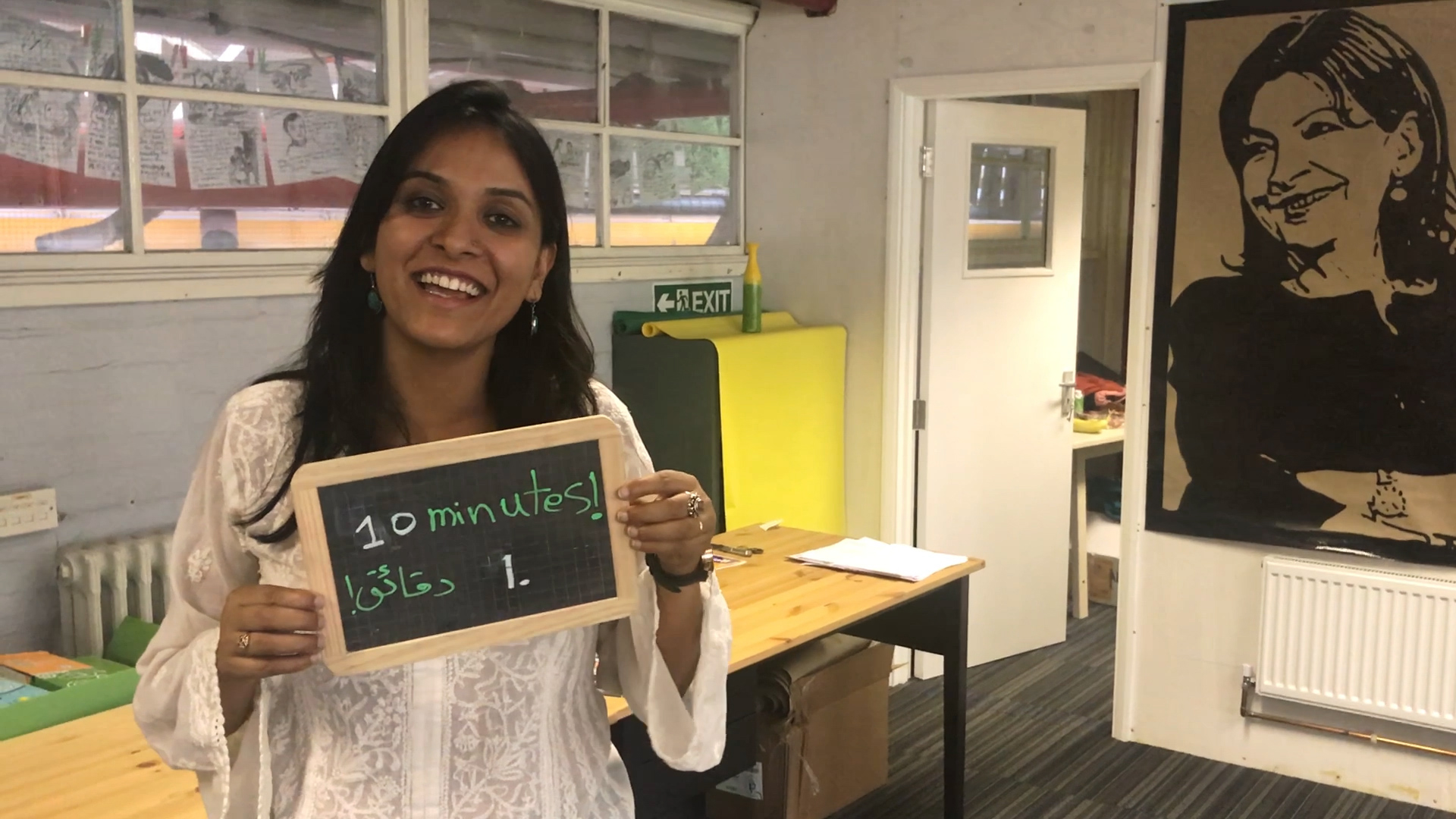Words by Charlotte Hochman, visuals by Michele Caleffi
Reading Time: 6 minutes
How do you make sure people take full ownership of innovation spaces so they make things happen themselves?
How can you bring out a sense of agency so that people take action rather than stay on the receiving end of whatever you organise? How can you make sure people are not passive at an event? And how context-specific are the answers to these challenges?
These questions are typically the starting point of our work with Wow!Labs, creating spaces for innovation, be they permanent or pop-up, in a variety of sectors and cultures.
Being hosted can be a very passive act. Think of dropping by at someone’s home you don’t know well. Are you more comfortable as the host serving the drink, or as the guest sitting at the edge of the couch waiting for it? That’s right.
How can we avoid people in a space feeling like they’re sitting on the edge of the couch? From this angle, the answer comes easily: they need to be figuratively pouring the drink. Here are a few ways we make sure that happens.
Turn the users into hosts… ta-daa!
Every space needs a host, or ideally a team of part-time hosts: people who know the ins and outs of the space, embody its culture and rules, and act as facilitators to the interactions between users of the space. They are there to welcome people, showcase projects, and amplify behaviours, so the culture of innovation that supports the place is a reality on a daily basis.
The best hosts are the users themselves – especially the ones starting out on their innovation journey. The people using the space to come up with new or better ideas are usually the best ones to play hosts to others.
Why?
First, because through what they are trying to do (come up with ideas), they embody the ambitions of the space, which instantly rubs off on new users and guests. From embodying its ambition, for them to embody the rules and expected behaviours of the space for others is a short step away. Minimal training will do the trick, especially if they co-create the rules of the game, or can make them evolve.
Second, because for them to feel they embody what the space stands for will help them to feel legitimate. Confidence in one field can be a powerful leverage for feeling inspired in another. Being a confident host can be used to establish a growth mindset for themselves- the needed basis for anybody to come up with new or better ideas in the problems they are trying to solve.
Put the rules of the game in plain sight
Shared spaces rely on codes of behaviour that are common to those who design them and those who are responsible of running them, but are often invisible, surprisingly, to the users themselves.
The challenge is to create truly common rules, that are visible enough for a variety of people to bring the space to life in their own style. Effervescence, that elusive grail searched by so many people in charge of organising events or running spaces, is a result of rules being interpreted, tweaked and customised by a variety of people. But for that to happen, rules of the game need to be explicit.
Expected behaviours can be made explicit on playful signs to make codes visible to anyone. Signs might include – depending on the culture and tone of the space- “please rest here and make yourself at home” for informal mingling or resting areas, “let’s be shoe-FREEE!” for carpeted chill-out spaces, or “coffee, anyone?” for areas where you want to encourage refuelling with drinks and sparking off spontaneous conversations.
Feeling like we master the codes of where we are makes any of us feel at home immediately. And yes, the opposite is true.

Make the voice of the hosts visible
There’s an easy trick to create engagement: using a physical support such as a slate or an erasable board (ideally in tune with the design of the space) on which the hosts write out messages relevant to the moment. This works especially efficiently at events. It dramatically increases the uptake of new behaviours by large quantities of people at a time. In projects we set up with Wow!Labs, we use abundantly slates, or other modular signage that is portable and can evolve. Hosts can position the slates in different areas of permanent spaces, or circulate with them at events, showing messages to participants that point them towards food or whatever is next in their shared life.
Humour, that great human asset, can be used on this signage as a deliberate way to divert from any heaviness that might result from not sharing the same codes, especially for new users, or in events. By being a little off-balance for everyone, this shared sub-text to the experience actually creates a shared experience of the moment or of the space, which over time constitutes a shared culture. Light-hearted hand-held, handwritten, spontaneous messages will give out the strong message that people determine the culture, not an institution, a brand, or anything else that is less trustworthy than an actual person. That trust in the functioning of the space needs to be real, and only hosts can create it.
Letting go of power creates more power somewhere else in the system. Imperfect makes for co-creation.
Keep it imperfect
Let go of a certain control so that others can make their own mark.
Whether that’s through blank slates that you ask people to write their own message on for others, parts of the space on which you continuously invite co-design, or open questions relative to the use of the space that you leave around to receive feedback on, the options are endless. Letting go of power creates more power somewhere else in the system. Imperfect makes for co-creation.
How far can you go experimenting with hosting to create the right involvement from users? Around these principles, we’ve found that there really is no limit to experimentation, to find the adequate style, culture and behaviours to the specific context.
As long as the experiment remains open and trusting, there’s no taboo around creating common codes for a large number of people from different worlds, in potentially endless ways.
That’s one certainty we’ve come to: across vastly diverse contexts, perhaps the surest thing people have in common is their desire to feel like behaviours in a space or event are not a closed book which has already been written, but a dance they can join.
As long as the experiment remains open and trusting, there’s no taboo around creating common codes for a large number of people from different worlds, in potentially endless ways.
That’s one certainty we’ve come to: across vastly diverse contexts, perhaps the surest thing people have in common is their desire to feel like behaviours in a space or event are not a closed book which has already been written, but a dance they can join.
Charlotte Hochman is the Executive Director of Wow!Labs, accelerating innovation for companies, cities and universities in emergent situations. She has founded incubators and designed curriculums for leading institutions. Charlotte is a Fulbright scholar, an Entrepreneur-in-Residence at INSEAD, Designer-in-Residence at CCA in San Francisco, a BMW Foundation Responsible Leader, and a panelist at Obama’s Presidential Summit. Discover her work and access her guide "People spaces: How to create, convene and take part meaningfully in new spaces online”.



0 Comments